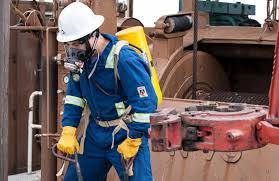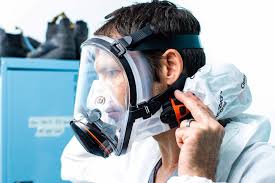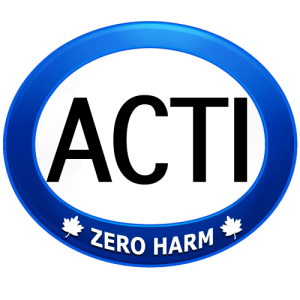
🔍 Click to Expand: PortaCount Respirator Fit Testing Training Overview
The PortaCount Respirator Fit Testing Training Program is designed to equip professionals with the essential knowledge and skills required to accurately conduct respirator fit tests using the PortaCount® Pro and Pro+ fit testers. This comprehensive course ensures adherence to safety standards and provides a robust understanding of equipment operation, daily checks, maintenance, and troubleshooting.
Participants will learn how to set up, operate, and manage the PortaCount fit testing systems. The course covers topics such as equipment unpacking, calibration, conducting fit tests, recording results, and using advanced database tools to manage fit test data effectively.
📌 Key Learning Modules:
- Introduction & Overview: Understanding the purpose of respirator fit testing, the significance of proper respirator fit, and an overview of the PortaCount® Pro and Pro+ systems.
- Equipment Setup & Operation: Step-by-step instructions on unpacking, verifying shipment, setting up the tester, and navigating the touch screen interface, sampling ports, and electrical connections.
- Conducting Fit Tests: Detailed procedures for preparing the tester (including filling the alcohol cartridge and attaching flash drives), running daily checks, and executing the fit test protocol with precision.
- Data Management & Reporting: Guidance on selecting databases, recording fit test results, and generating detailed reports using advanced database tools and FitPro+ software.
- Maintenance & Troubleshooting: Essential practices for routine maintenance, calibration, nozzle cleaning, and resolving common operational issues to ensure optimal performance.
✅ Upon Completion:
Participants who successfully complete the PortaCount Respirator Fit Testing Training Program will be able to:
- ✅ Operate and maintain the PortaCount fit testers in both stand-alone and external control modes.
- ✅ Conduct comprehensive fit tests following industry standards and regulatory guidelines.
- ✅ Perform daily checks and troubleshooting to ensure accurate and reliable test results.
- ✅ Manage and analyze fit test data effectively using advanced database tools and generate detailed reports.
- ✅ Apply best practices in respirator fit testing to enhance workplace respiratory protection programs.
Upon meeting all course requirements, participants will receive a PortaCount Respirator Fit Testing Certification, recognized by industry professionals as a mark of proficiency in quantitative respirator fit testing and safety.

🔍 Click to Expand: ACTI Respiratory Protective Equipment (RPE) Training Overview
📌 ACTI Respiratory Protective Equipment (RPE) Training Overview
The ACTI Respiratory Protective Equipment (RPE) Training Program is designed to provide workers with the knowledge and skills necessary to correctly use, inspect, and maintain respiratory protective equipment in compliance with OH&S regulations, CSA Z94.4 standards, and industry best practices. This course ensures participants understand the importance of respiratory protection in hazardous work environments.
Participants will learn to identify respiratory hazards, select appropriate RPE, perform fit testing, conduct pre-use inspections, and follow emergency procedures. The course covers legislation, types of respirators, maintenance, cleaning, and practical application.
🔹 Key Learning Modules:
- Legislation & Standards: Understanding OH&S regulations, CSA Z94.4, and employer responsibilities for respiratory protection.
- Types of Respiratory Protective Equipment: Identifying and selecting appropriate respirators, including SCBA and SABA.
- Facial Requirements & Fit Testing: Proper fit testing techniques, facial hair policies, and ensuring a secure seal.
- Inspection, Maintenance & Cleaning: Conducting pre-use checks, cleaning, storing, and maintaining respiratory equipment.
- SCBA (Self-Contained Breathing Apparatus): Inspection, donning, doffing, and troubleshooting SCBA systems.
- SABA (Supplied Air Breathing Apparatus): Understanding components, inspection, and safe operation.
- Environmental Considerations: Operating in extreme temperatures, confined spaces, and oxygen-deficient atmospheres.
- Emergency Response & Air Quality: Identifying IDLH (Immediately Dangerous to Life or Health) conditions and emergency procedures.
✅ Upon Completion:
Participants will be able to:
- ✅ Understand and apply OH&S and CSA Z94.4 regulations regarding respiratory protection.
- ✅ Identify respiratory hazards and determine the appropriate protective equipment.
- ✅ Perform pre-use inspections and ensure RPE is functioning correctly.
- ✅ Conduct proper fit testing using qualitative and quantitative methods.
- ✅ Use SCBA and SABA safely, including donning, doffing, and air supply management.
- ✅ Maintain, clean, and store RPE to ensure long-term usability and compliance.
- ✅ Recognize and respond to emergency situations requiring respiratory protection.
- ✅ Pass a written knowledge assessment (minimum 80%) and successfully complete the practical evaluation.
Participants who meet all course requirements will receive an ACTI Respiratory Protective Equipment (RPE) Certification, recognized across Canada, ensuring they are qualified to use and maintain respiratory protective equipment in industrial, construction, and hazardous work environments.

🔍 Click to Expand: ACTI Air Purifying Respirator (APR) Training Overview
📌 ACTI Air Purifying Respirator (APR) Training Overview
The ACTI Air Purifying Respirator (APR) Training Program is designed to equip workers with the knowledge and skills required to safely use, inspect, and maintain air-purifying respirators. This training aligns with Occupational Health & Safety (OH&S) regulations, CSA Z94.4 standards, and industry best practices, ensuring compliance and workplace safety.
Participants will learn to identify airborne contaminants, select appropriate APRs, perform fit testing, conduct pre-use inspections, and maintain respiratory equipment. The course covers filtration principles, cartridge selection, hazard assessment, and emergency procedures.
🔹 Key Learning Modules:
- Legislation & Standards: Understanding OH&S regulations, CSA Z94.4, and employer responsibilities for respiratory protection.
- Why Respiratory Protection? Identifying the need for APRs, health risks, and regulatory requirements.
- Types of Air-Purifying Respirators: Full-face, half-face, disposable masks, and powered air-purifying respirators (PAPR).
- Filtration & Cartridge Selection: Understanding filter types, gas/vapor cartridges, color coding, and assigned protection factors (APF).
- Fit Testing & Facial Requirements: Performing qualitative and quantitative fit testing, facial hair policies, and ensuring a proper seal.
- Pre-Use Inspection & Fit Checks: Identifying defects, conducting negative/positive pressure fit tests, and ensuring respirator functionality.
- Storage, Maintenance & Cleaning: Proper cleaning, disinfection, storage, and replacement schedules for filters and cartridges.
- Emergency Procedures & Limitations: Recognizing IDLH (Immediately Dangerous to Life or Health) atmospheres and APR limitations.
✅ Upon Completion:
Participants will be able to:
- ✅ Understand and apply OH&S and CSA Z94.4 regulations regarding air-purifying respirators.
- ✅ Identify airborne contaminants and select the appropriate respirator and filter/cartridge.
- ✅ Perform pre-use inspections to ensure APRs are in proper working condition.
- ✅ Conduct qualitative and quantitative fit testing to verify a secure and effective seal.
- ✅ Properly don, doff, and adjust APRs for effective protection in hazardous environments.
- ✅ Maintain, clean, and store APRs to ensure compliance with industry best practices.
- ✅ Recognize APR limitations and identify situations where supplied-air respirators are required.
- ✅ Pass a written knowledge assessment (minimum 80%) and successfully complete the practical evaluation.
Participants who meet all course requirements will receive an ACTI Air Purifying Respirator (APR) Certification, recognized across Canada, ensuring they are qualified to use and maintain air-purifying respirators in industrial, construction, and hazardous work environments.

